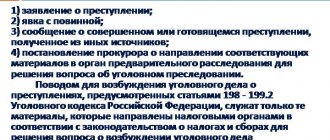General information
In Art. 42 of the Criminal Procedure Code establishes the grounds for recognition as a victim in a criminal case. Such a subject is considered to be an individual who has suffered moral, physical damage or damage to his property. A legal entity may also be a victim if illegal actions have caused damage to its property or reputation.
In accordance with Part 8 of Art. 42 of the Code of Criminal Procedure, a statement of recognition as a victim in a criminal case, for example, of rape, the consequence of which was the death of the victim, can be written by one of her relatives. It must be said that in the previous Code there was no such provision. However, the Resolution of the Plenum of the Supreme Court of 1985 provided clarification on this issue. The document states that if several individuals from the circle of close relatives insist on recognition as a victim in a criminal case, their requests can be granted.
Today, however, the legislator is very categorical on this issue. If we continue to use rape followed by the death of the victim as an example, then the current norms provide for the possibility of recognizing only one of the relatives of the deceased as a victim in a criminal case. According to many lawyers, such a restriction does not contribute to the effective and full implementation of the rights of family members of the deceased. Essentially, what we are talking about here is the failure to provide access to justice to a number of citizens whose interests may well be affected by a court decision. These persons cannot obtain procedural opportunities to ensure the protection of their rights. In particular, they cannot challenge the court's decision on the merits of the case. And, therefore, unable to restore the interests infringed by this act.
Who and when can be considered as such
This status is assigned to a person or company representative only after an appropriate decision has been made. Not one person, but a group of people can be recognized as a victim if it is proven that the unlawful actions of the offender caused harm to all of them.
As for the time period during which such a decision became valid and a person was assigned the appropriate status, they were not defined until recently. This created significant difficulties for the consideration of the case.
However, in 2014, a corresponding regulatory document was adopted, which states that the status of a victim is assigned to a person whose interests have been violated since the initiation of a criminal case.
If investigators do not have sufficient information about the identity of a potential victim, then this person can be recognized as a victim immediately after receiving this information.
Grounds for recognition as a victim in a criminal case
They are divided into 2 groups: factual and legal. The former are also called material. These grounds are related to the harm caused by the crime. The second group - legal or procedural grounds - are decisions of investigative and court authorities in a criminal case.
Recognition as a victim means that a person is allowed to participate in legal proceedings. Its status is based on the implementation of a certain set of rights and obligations enshrined in procedural legislation.
The key purpose of an application for recognition as a victim in a criminal case is to restore civil rights violated by the crime, or to compensate for the damage caused by illegal actions, or both. The subject can achieve this by having the appropriate procedural powers. Thus, within the framework of criminal proceedings, a person must be provided with such a set of rights that would allow him to fight to achieve his goals.
Procedure for assigning status
A person or legal entity can be recognized as a victim either at his own request or at the initiative of the body in charge of the criminal case.
Refusal to recognize a victim can be appealed pre-trial (Resolution of the Plenum of the Supreme Court No. 17).
In order to recognize a person as a victim, special circumstances must exist
So, it is important to prove the following points: . The fact of causing damage to the injured person
Such damage may be material (as a result of theft or damage to tangible property), moral (for example, desecration of reputation, insults, slander) or physical (causing bodily harm).
The connection between the criminal acts committed and the resulting consequences in the form of damage to a particular person or organization. That is, it is important to realize that it was the actions of the criminal that entailed negative consequences for the victim of the act.
- The fact of causing damage to the injured person. Such damage may be material (as a result of theft or damage to tangible property), moral (for example, desecration of reputation, insults, slander) or physical (causing bodily harm).
- The connection between the criminal acts committed and the resulting consequences in the form of damage to a particular person or organization. That is, it is important to realize that it was the actions of the criminal that entailed negative consequences for the victim of the act.
The victim is assigned rights and obligations corresponding to this status, and now this person is a party to the legal proceedings in the case.
After this application has been considered, the victim is summoned to the investigative body, where his identity is verified, a document - a resolution - is provided for review, and all the rights and obligations that the status of a victim imposes on the victim are explained.
Procedural options
Many people mistakenly believe that the scope of a victim's rights varies depending on the category of crime. For example, after confessing as a victim in a criminal case of rape resulting in death, one of the relatives receives more procedural opportunities than, say, in the case of theft causing death. This is far from true.
The legislation establishes a fairly wide range of procedural possibilities for victims. And their volume does not depend on the severity of the crime or other circumstances. The norms of the Code of Criminal Procedure 246, 318, 42, 328, 314, etc. establish general and special procedural duties and rights. So, in part 2 of Art. 42 states that the victim has the right to participate in the hearing of the first instance. Article 314 of the Code specifies the role of the victim, who may object to a special procedure for proceedings in court. 318 norm establishes the right of the victim to initiate a criminal case classified as a private prosecution by filing an appropriate application. In such cases, the victim acts as a private prosecutor.
The adversarial principle
It is recognized as one of the key provisions determining the status of the victim. In accordance with this principle, the defense and prosecution parties are given equal opportunities to ensure their interests. This equality presupposes the same scope of powers.
At the same time, it is incorrect to elevate it to the number of absolute categories. It cannot be assumed that the content and scope of the rights of participants completely coincide. The purposes of the parties' participation in the process vary. This is reflected in the totality of legal opportunities provided to them. It follows from this that the procedural status, for example, of the accused cannot completely coincide with the status of the victim. These differences are objective and quite understandable.
So, for example, the subject against whom a case has been initiated is subject to restrictive measures from officials and government agencies to a greater extent. Therefore, the accused must be provided with special means of protecting his interests and rights from the unreasonable application of legal instruments to him. The law establishes the possibility to invite or demand the appointment of a lawyer from the moment of detention, to challenge the decision to apply a preventive measure against him. The legislation allows a person suspected of committing an unlawful act to refuse to testify, recognizing this as one of the means of protecting his interests and rights.
Between some interested participants in legal proceedings, differences in the range of procedural possibilities are allowed. However, it must be objective in practice. At the same time, artificial creation of differences in the procedural status of subjects and restriction of their rights is not allowed. For example, from clause 9, part 2, art. 42 it follows that when recognized as a victim in a criminal case, a person receives the right to familiarize himself with the protocols of investigative actions carried out with his participation. In clause 8, part 4, art. 46 the same right is secured for the victim. However, it is supplemented by the ability to submit comments on the protocols.
An example can also be given in clause 10, part 2, art. 42 and paragraph 11, part 4, art. 47 Code of Criminal Procedure. Recognition as a victim in a criminal case, according to the first norm, presupposes the possibility of a person to familiarize himself with the decision on the appointment of a forensic medical examination, and with the conclusion of specialists - only in cases where the procedure was carried out directly in relation to him. Article 47 of the Code enshrines a similar right of the accused. But without any restrictions. According to a number of lawyers, such a difference between the scope of the victim’s procedural rights is not objectively justified and should be eliminated. In criminal proceedings, experts believe, this will contribute to more effective protection of the interests and rights of participants in the proceedings. However, no innovations have been provided yet.
Protecting the rights and representing the interests of the victim
This Personal Data Privacy Policy (hereinafter referred to as the “Policy”, “Privacy Policy”) applies to all information that Ramki Zakon LLC (hereinafter referred to as the “Company”) can obtain about the User while using the website located at: https ://lawforyou.ru/, as well as services, services, programs, products or services, and during the execution by the Company of any agreements and contracts with the User, including the possibility of sending information, including advertising (hereinafter referred to as “Use”).
Use of the Company’s services means the User’s unconditional consent to this Policy and the conditions for processing his personal information specified therein; in case of disagreement with these conditions, the User must refrain from use.
The Company assumes that the User who initiates Use consciously determines his requests and controls the technical parameters of the equipment he uses, and has also familiarized himself with this Policy in full. If the User disagrees with the Policy, Use must be terminated.
1. GENERAL PROVISIONS
1.1. Within the framework of this Policy, the User’s personal information means:
1.1.1. Personal information that the User provides about himself independently during registration (creating an account/personal account) or in the process of participating in the Use, including the User’s personal data. Information required for the provision of Services is marked in a special way. Other information is provided by the User at his discretion.
1.1.2. Data that is automatically transmitted as a result of the User’s Use using software installed on the User’s device, including IP address, cookie data, information about the User’s browser (or other program through which services are accessed), technical characteristics of the equipment and software used by the User, date and time of access to services, addresses of requested pages and other similar information.
1.1.3. Other information about the User, the processing of which is provided for in the Agreement for the use of the Site and/or the possible receipt of which is technically determined.
1.1.4. This Privacy Policy applies only to the Site https://lawforyou.ru/. The Company does not control and is not responsible for third party sites, which the User can access via links available on the Site https://lawforyou.ru/.
2. PURPOSES OF PROCESSING USERS’ PERSONAL INFORMATION
2.1. The Company collects and stores only that personal information that is necessary to provide/receive Use, including the execution of agreements and contracts with the User, except in cases where the law provides for mandatory storage of personal information for a period specified by law.
2.2. The Company processes the User’s personal information for the following purposes:
2.2.1. Identification of the User, within the framework of Use, for processing requests, execution of agreements and contracts with the Company.
2.2.2. Providing the User with the opportunity for personalized Use and execution of agreements and contracts;
2.2.3. Establishing feedback with the User, including sending notifications, requests regarding Use, execution of agreements and contracts, provision of services, processing requests and applications from the User, including possible mailings of informational and advertising nature;
2.2.4. Improving the quality of Use, convenience, developing new features and options for Use;
2.2.5. Targeting of advertising materials;
2.2.6. Conducting statistical and other studies based on anonymized data;
2.2.7. Creating an account if the User has given consent (including through his/her implied actions) to create an account.
2.2.8. Providing the User with effective customer and technical support if problems arise related to the use of the Site.
3. CONDITIONS FOR PROCESSING USERS’ PERSONAL INFORMATION AND ITS TRANSFER TO THIRD PARTIES
3.1. With regard to the User's personal information, its confidentiality is maintained, except in cases where the User voluntarily provides information about himself for general access to an unlimited number of persons. When using certain Use options, the User agrees that a certain part of his personal information becomes publicly available.
3.2. The Company has the right to transfer the User’s personal information to third parties in the following cases:
3.2.1. The user agreed to such actions.
3.2.2. The transfer is necessary for the User to use a certain service or to fulfill a certain agreement or contract with the User.
3.2.3. The transfer is provided for by Russian or other applicable legislation within the framework of the procedure established by law.
3.2.4. Such a transfer occurs as part of the sale or other transfer of a business (in whole or in part), and all obligations to comply with the terms of this Policy in relation to the personal information received by him are transferred to the acquirer;
3.2.5. In order to ensure the possibility of protecting the rights and legitimate interests of the Company or third parties in cases where the User violates the provisions of the current legislation of the Russian Federation in this area, or documents containing the conditions for using specific options of Use, as well as this document;
3.2.6. As a result of processing the User's personal information by depersonalizing it, anonymized statistical data may be obtained, which is transferred to a third party to conduct research, perform work or provide services on behalf of the Company.
3.3. The processing of the User's personal data is carried out without a time limit in any legal way, including in personal data information systems using automation tools or without the use of such tools. The processing of Users’ personal data is carried out in accordance with Federal Law dated July 27, 2006 N 152-FZ “On Personal Data”.
3.4. In case of loss or disclosure of personal data, the Company informs the User about the loss or disclosure of personal data.
3.5. The Company takes the necessary organizational and technical measures to protect the User’s personal information from unauthorized or accidental access, destruction, modification, blocking, copying, distribution, as well as from other unlawful actions of third parties.
3.6. The Company, together with the User, takes all necessary measures to prevent losses or other negative consequences caused by the loss or disclosure of the User’s personal data.
4. OBLIGATIONS OF THE PARTIES
4.1. The user is obliged:
4.1.1. Provide information about personal data necessary for Use.
4.1.2. Update and supplement the provided information about personal data if this information changes.
4.2. The society is obliged:
4.2.1. Use the information received solely for the purposes specified in this Privacy Policy.
4.2.2. Ensure that confidential information is kept secret, not disclosed without the prior written permission of the User, and also not sell, exchange, publish or disclose in other possible ways the transferred personal data of the User, except as provided for in this Privacy Policy.
4.2.3. Take precautions to protect the confidentiality of the User's personal data in accordance with the procedure generally used to protect this type of information in existing business transactions.
4.2.4. Block personal data relating to the relevant User from the moment of application or request from the User or his legal representative or the authorized body for the protection of the rights of personal data subjects for the period of verification in the event of detection of unreliable personal data or unlawful actions.
4.3. The user can at any time change (update, supplement) the personal information provided by him or part of it, and can also delete the personal information provided by him within a certain account.
4.4. The rights provided for in paragraphs.
4.3. of this Policy may be limited in accordance with legal requirements. In particular, such restrictions may provide for the obligation of the Company to retain information changed or deleted by the User for a period established by law, and to transfer such information in accordance with the legally established procedure to a government agency.
5. PROCESSING OF PERSONAL INFORMATION USING COOKIES AND COUNTERS
5.1. Cookies available on the User's equipment for any reason may be used by the Company to provide the User with personalized usage options, to target/distribute information/advertising that is shown to the User, for statistical and research purposes, as well as to improve Usage options.
5.2. The User understands that the equipment and software used for Use may have the function of prohibiting operations with cookies (for any sites or for certain sites), as well as deleting previously received cookies.
5.3. The Company has the right to establish that the provision of certain Use options is possible only on the condition that the acceptance and receipt of cookies is permitted by the User.
5.4. The structure of the cookie file, its content and technical parameters are determined at the discretion of the Company and may be changed without prior notice to the User.
5.5. Counters placed by the Company during Use can be used to analyze the User's cookies, to collect and process statistical information and for other purposes. Technical parameters of the meters are determined by the Company and may be changed without prior notice to the User.
6. MEASURES USED TO PROTECT THE USER'S PERSONAL INFORMATION
6.1. The Company takes necessary and sufficient organizational and technical measures to protect the User’s personal information from unauthorized or accidental access, destruction, modification, blocking, copying, distribution, as well as from other unlawful actions of third parties with it.
6.2. The Company uses information from the User’s profile (login and password) to authorize access to the Use. The User is responsible for the safety of this information, including login and password. Any actions performed using it are considered by the Company to have been performed by the User. Transferring the user's own login and password to third parties is prohibited. If the User becomes aware of the login and password of another user, as well as other confidential information about the latter, he is obliged to notify the Company about this and not use the specified information that has become known to him.
6.3. The User's access to the Use may involve accessing third party Internet resources and downloading from them program code and/or graphic objects (including those invisible when the browser displays Internet pages) used for advertising purposes and for collecting statistics. The owners of these resources have the technical ability to collect information about the User and independently determine the conditions for its use. By configuring the software, the User has the ability to block requests for graphic images hosted on third-party servers, however, this may lead to loss of readability and errors when displaying resources. When users move from the Company's Use pages to the pages of Internet resources of third parties, the User independently determines the limits of the use of information about them within the framework of the conditions and rules determined by the owners of the relevant Internet resources.
6.4. The Company's Internet resources may contain links to resources of third parties to which this document does not apply. The Company is not responsible for the actions of third parties using the Company’s Internet resources in their activities.
6.5. Ensuring the security of the User's personal data is achieved by monitoring to identify threats to the security of personal data during their processing; application of organizational and technical measures to ensure the security of personal data during their processing; by assessing the effectiveness of measures taken to ensure the security of personal data; by detecting facts of unauthorized access to Personal Data and taking measures to eliminate them; by establishing rules for access to personal data; by monitoring the measures taken to ensure the security of personal data.
7. CHANGES TO THE PRIVACY POLICY. APPLICABLE LAW
7.1. The Company has the right to unilaterally make changes to this Privacy Policy at any time.
7.2. The new Privacy Policy comes into force from the moment it is posted on the Site, unless otherwise provided by the new edition of the Privacy Policy.
7.3. This Policy and the relationship between the User and the Company arising in connection with the application of the Privacy Policy are subject to the law of the Russian Federation.
8. RIGHTS AND OBLIGATIONS OF THE PARTIES
8.1. The Site user has rights determined by the provisions of the current legislation of the Russian Federation.
8.2. When visiting and using the Company’s Internet resources, the User is obliged to: comply with the provisions of the current legislation of the Russian Federation and this document; compensate for losses incurred by the Company, other Users or third parties as a result of violation of the Policy or the legislation of the Russian Federation; comply with the provisions of the documents governing the Use, as well as the legislation of the Russian Federation; familiarize yourself with all legal information posted on the Site or accessible on it through links.
8.3. When using, the User is prohibited from: publishing and distributing any information that:
- contains threats, discredits, insults, discredits honor and dignity or business reputation or violates the privacy of other Site Users or third parties;
- violates the rights of minors;
- is obscene, contains obscene language, contains pornographic images and texts or scenes of a sexual nature involving minors;
- contains scenes of violence or inhumane treatment of animals;
- contains a description of the means and methods of suicide, any incitement to commit it;
- promotes and/or contributes to the incitement of racial, religious, ethnic hatred or enmity, promotes fascism or the ideology of racial superiority; contains extremist materials;
- promotes criminal activity or contains advice, instructions or guidelines for committing criminal acts;
- contains restricted information, including, but not limited to, state and commercial secrets, information about the private life of third parties;
- contains advertising or describes the attractiveness of drug use, information about the distribution of drugs, recipes for their manufacture and advice on use; is fraudulent;
- violates the rights of third parties to the results of intellectual activity;
- violates the rights of personal data subjects;
- violates other rights and interests of citizens and legal entities or the requirements of the legislation of the Russian Federation.
8.4. The user is prohibited from:
- carry out mass mailings of messages;
- use software and carry out actions aimed at disrupting the normal functioning of the technical capabilities and equipment of the Company;
- publish and distribute on the Site or otherwise use viruses, Trojan horses and other malicious programs;
- post commercial and political advertising on the Site;
- carry out other actions that may harm the Company, third parties, and Users.
9. DISPUTE RESOLUTION
9.1. Before filing a claim in court regarding disputes arising from the relationship between the User and the Company, it is mandatory to submit a claim (a written proposal for a voluntary settlement of the dispute).
9.2. The recipient of the claim, within 15 calendar days from the date of receipt of the claim, notifies the claimant in writing of the results of consideration of the claim.
9.3. If an agreement is not reached, the dispute will be referred to the Dzerzhinsky District Court of St. Petersburg or the Arbitration Court of St. Petersburg and the Leningrad Region in accordance with the current legislation of the Russian Federation.
10. ADDITIONAL TERMS
10.1. Any suggestions or questions regarding this Privacy Policy should be reported to
10.2. The current Privacy Policy is posted on the page at: https://lawforyou.ru
10.3. This Privacy Policy is an integral part of the Agreement for the use of the Site, located on the page at: https://lawforyou.ru/
Procedural nuances of the Code of Criminal Procedure of the Russian Federation
Recognition as a victim in a criminal case presupposes an explanation by officials of his rights and obligations. The effectiveness of their implementation will depend on this. An official must not only fulfill his duties conscientiously, but also do it in a timely manner.
The current legislation does not indicate the moment at which the victim should be explained his procedural options. Article 42 establishes his duties and rights. The procedure and timing of recognition as a victim in a criminal case are not specified at all. In this regard, a problem arises with ensuring the protection of his interests.
Specifics of participation in the pre-trial stage
The very first right of a person who has become a victim of a crime is the opportunity to take part in legal proceedings. It is provided by a variety of procedural means. The difference in the implementation of this right is associated with the specifics of the stage at which the production is located.
At the pre-trial stage, the victim has the opportunity to participate from the very beginning. The subject who is subsequently recognized as a victim can play the role of the applicant and avail himself of the corresponding legal options. In particular, a person has the right to submit on his own behalf an application for committing a crime and receive documentary evidence of its acceptance. These procedural possibilities are ensured by the duties of officials enshrined in the Code of Criminal Procedure in Part 1 of Art. 144. The applicant can contact any law enforcement agency with a report of an impending or committed crime. In this case, the subject does not have to comply with the rules on jurisdiction. In this regard, the refusal of an official to accept a statement due to the fact that the crime falls under the jurisdiction of another body is considered unlawful and can be challenged in the manner established by criminal procedural rules. But in order for an appeal to be possible, the subject must request a written refusal from an authorized person to accept the message.
Concept and characteristics
Victim of a crime - a victim is a person whose rights (material, physical or moral) were violated by the criminal actions of an attacker.
In this case, the citizenship of a person does not matter (he may not be a resident of our country), his age or gender, social status, state of health, both physical and emotional.
The only important point is the fact that the criminal caused any harm or damage to this person.
The victim is not always an individual. For example, if an unlawful act was committed against the business reputation or property of an organization - a legal entity, and these acts caused damage to it, such an organization can also be recognized as a victim.
In this case, in court proceedings, the interests of the company are represented by its director or another person vested with these powers.
Moment of admission of the victim to production
A decision on recognition as a victim in a criminal case serves as a formal basis for involving the victim of a crime in the preliminary investigation. The moment of immediate admission of a person will depend on the discretion of the investigative authorities and the presence of a sufficient and necessary set of factual grounds - information about causing harm to someone.
In practice, there are often cases when the victim begins to participate in the case immediately after its initiation. It also happens, however, that investigative authorities have to take measures to search for victims. Taking into account all that has been said, it is not possible to establish any specific, universal moment for the admission of a crime victim to the case. It will be determined in each case individually, taking into account the circumstances.
Compensation for damage
Some property offenses require early closure of the investigation if the parties involved have reconciled.
As a rule, this is possible if the perpetrator compensates the injured person for the material damage caused, or pays compensation for the moral damage caused.
The offender can do this on his own. In this case, only voluntary compensation for harm is considered a circumstance allowing the termination of the proceedings.
If the perpetrator does not want to voluntarily compensate for material damage, a court decision forces him to do so.
Thus, a court decision may include the confiscation of the property of the convicted person in favor of the victim, and the imposition of an obligation on the perpetrator to pay a fine.
A person who has suffered from the actions of a criminal is recognized as a victim after he submits a corresponding application - a petition.
This allows the victim of a crime to actively defend their rights and receive all the necessary information about the progress of the investigation and the court decision. However, this also presupposes the existence of obligations that the victim must comply with.
Didn't find the answer to your question? Find out how to solve exactly your problem - call right now:
| Share with friends: |
Did you like the article? Follow site updates or.
Comments:
Features of participation in the hearing at first instance
They are disclosed in the criminal procedure law in sufficient detail. A person’s participation in first instance hearings is ensured by the following tools.
First of all, you should pay attention to Part 4 of Art. 231. The norm provides for the duty of the judge, when making a decision to schedule a meeting, to notify the participants at least 5 days in advance. The parties are notified of the time, place, and date of the hearing.
Secondly, in accordance with Part 1 of Art. 249 of the Code of Criminal Procedure, the participation of the victim is mandatory when considering a criminal case on the merits. Consequently, a meeting can be held without sacrifice only if special grounds have been established. In such cases, the court must take measures to clarify the reasons for the absence of the victim.
To more clearly ensure the rights of the victim to participate in the proceedings in the first instance, the law must directly indicate that his failure to appear for valid reasons should lead to the postponement of the hearing. If the circumstances of the absence were not clarified or the victim was not notified in a timely manner of the time, place and day of the meeting, the verdict, at the request of the interested parties, should be declared illegal and canceled by a higher authority. In this case, the case must be sent for re-examination. The higher authority must instruct the lower court to ensure the presence of the victim at the trial.
Important points
The Code of Criminal Procedure provides for the possibility of overturning a sentence if the right of the victim to participate in the proceedings has not been properly ensured. There are many cases in judicial practice when decisions were overturned precisely for this reason.
So, for example, in one of the cases the acquittal pronounced by the jury was overturned, since the victim’s right to participate in the proceedings was violated. The violation was due to the fact that the victim did not appear in court, but submitted a request to postpone the proceedings due to her illness. The court rejected this request. He motivated his decision by the fact that the victim did not provide a document confirming the statement of incapacity for work. Moreover, she had previously been interrogated in court, and therefore her appearance at the hearing was considered optional. Accordingly, the hearing was completed without the victim. The citizen provided the cassation instance with a sick leave certificate for the corresponding days. Having taken the evidence into account, the court decided to overturn the verdict and recognize the violation of the victim’s rights.
Drawing up an application
Currently, there is no unified form for applying for recognition as a victim in a criminal case. In practice, however, certain rules for its preparation have emerged. Firstly, a written request to be recognized as a victim in a criminal case is submitted to an official (inquirer/investigator). There are no forms for such statements, so the victim of a crime provides information in free form. The header of the document indicates the government agency or official in charge of the case, the applicant’s full name, and his contact information.
The petition shall indicate: the reasons and grounds for which the person should be recognized as a victim, justification for the damage caused (including moral damage). The date of compilation and signature are required.






